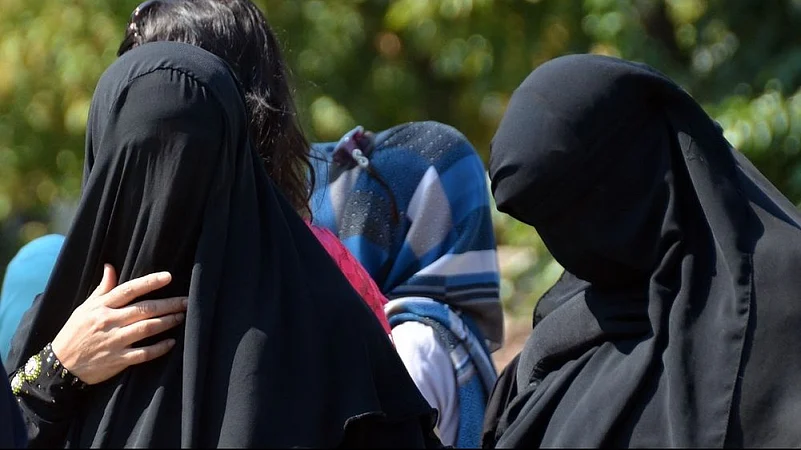The ban came about after a referendum held in 2021, in which Swiss citizens narrowly voted in favor of prohibiting face coverings in public, including the burqa and niqab worn by some Muslim women. The final tally was 51.2 percent in favor versus 48.8 percent opposed.
Outlook Web Desk
Updated on: 1 January 2025

Representative image
In Switzerland, the law prohibiting facial coverings has officially come into effect beginning January 1, 2025. The law known as the “burqa ban,” restricts face covering in public – including wearing the burqa or niqab which is commonly worn by Muslim women. Those who violate this law will be charged with fines of up to 1,000 Swiss francs (Rs 94,651.06).
What is exactly banned under this new law?
The new law specifically bans the covering of the nose, mouth, and eyes in both public spaces and private buildings accessible to the public. However, there are some exceptions – the ban does not apply to facial coverings worn for health reasons, such as medical masks or during cold weather; and coverings are permitted in places of worship, for artistic performances, or in advertising.
The ban also makes room for personal protection in cases where face covering is necessary for freedom of expression or assembly, as long as public order is maintained, and the responsible authorities approve such instances.
The facial coverings, notably, are still allowed on planes and in diplomatic or consular premises, as well as in certain sacred sites.
ALSO READ| The Shadow of Burqas
Why did Switzerland ban face coverings?
The ban came about after a referendum held in 2021, in which Swiss citizens narrowly voted in favor of prohibiting face coverings in public, including the burqa and niqab worn by some Muslim women. The final tally was 51.2 percent in favor versus 48.8 percent opposed.
The proposal was proposed by the right-wing Swiss People’s Party (SVP), which campaigned with slogans such as “Stop extremism.” Although the proposal did not explicitly target Islam, it has been widely perceived as a response to Islamic face coverings.
The Swiss government itself opposed the ban, arguing that it was not the role of the state to dictate what individuals, especially women, wear.
The ban's primary objective is to address what proponents argue is a symbol of extremism and a potential security risk.
Controversy over the ban proposal
Human rights groups, including Amnesty International, have sharply criticized the measure. Amnesty called the ban “a dangerous policy that violates women’s rights, including their right to freedom of expression and religion.” Critics argue that the ban disproportionately affects Muslim women, many of whom choose to wear the niqab or burqa as an expression of faith or personal conviction.
Research from the University of Lucerne revealed that the actual number of women in Switzerland who wear the burqa is negligible, with around 30 women reported to wear the niqab. Muslims make up about 5 percent of Switzerland’s population of 8.6 million, with the majority of Muslim residents hailing from countries like Turkey, Bosnia, and Kosovo.
Despite the relatively low number of people directly affected, the law's passage has ignited a broader debate about religious freedom, the rights of women, and cultural integration in the country.
No comments:
Post a Comment